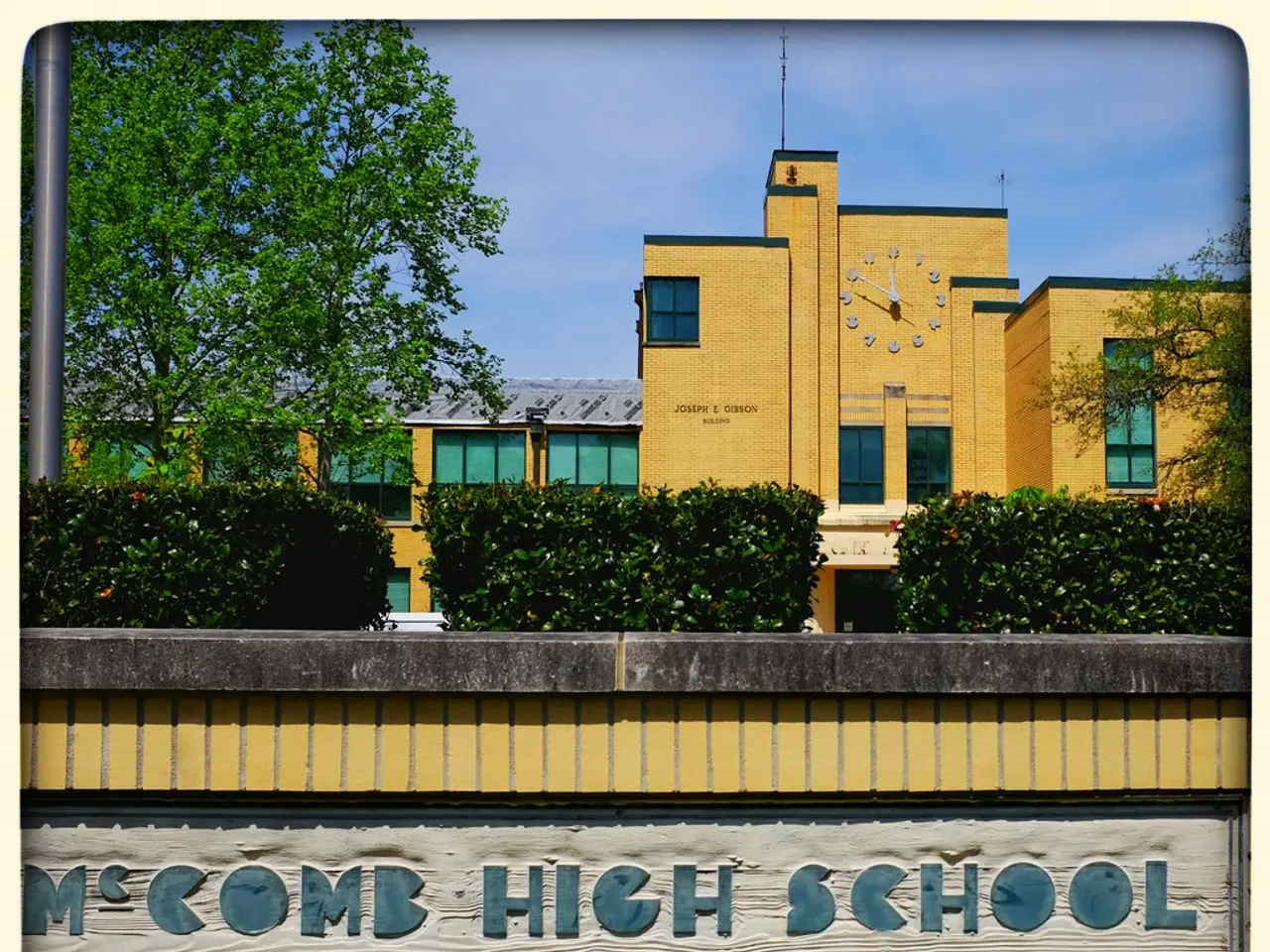Teenagers Taking On Real Life Issues and Instigating Progression
The Knowledge Society (TKS), a project-based learning program for teenagers aged 13-17, was established in 2016 by the Nathoo brothers. Their aim was to address the gap they perceived in traditional high school education, preparing students for the real world.
TKS offers a comprehensive program that spans a full school year, encompassing academic study, partner challenges, and individual projects. This approach enables students to develop a deep understanding of emerging technologies and sciences, while building their confidence and agency.
One such student, Max Blanksby, initially focused on artificial intelligence for his project. However, he later shifted his focus. His project in quantum computing, involving oracle functions, showcased his ability to adapt and innovate.
The unique nature of TKS provides students with a platform to stand out in college admissions. By engaging in innovative solutions to global challenges, they build a tangible portfolio of projects and gain direct exposure to professionals and experts beyond traditional classroom education. This experience demonstrates their initiative, creativity, and advanced skills, setting them apart from other applicants.
TKS also encourages students to make an impact in the world. Projects often tackle pressing technological and societal issues, nurturing a mindset of innovation and leadership. This empowers students to contribute meaningfully to their communities and industries.
Research on project-based learning supports TKS's principles. Students engaged in such programs show improvements in critical academic areas like engagement, collaboration, communication skills, and practical problem-solving abilities. These enhancements correlate with better academic outcomes and increased readiness for college and careers[1][2][3].
Admission to TKS is competitive, but not solely based on academic performance. Financial aid and scholarships are available to ensure accessibility. The program includes coaching in 21st century skills such as leadership and soft skills. Students are encouraged to build a professional image, including creating a LinkedIn profile and Medium account.
Throughout the program, students work together in groups for hackathons and do partner challenges with Fortune 500 companies to solve real-world problems. This collaborative approach fosters a spirit of teamwork and prepares students for the challenges they may face in their future careers.
Notable success stories include Elizabeth, a student who developed a clean water infrastructure proposal for a country in Africa and received funding to implement it. Another example is a 14-year-old student who won a project for IKEA to appeal to the younger generation.
Esther Kim serves as the director at The Knowledge Society. The program's mission is to support students who want to help the human condition, providing them with the tools and resources to make a positive impact on the world.
In conclusion, TKS is a specialized, project-based learning initiative that prepares teenagers for future success by developing their skills through real-world technology and innovation projects, boosting their college applications, and enabling them to make a positive societal impact.
[1] Hmelo-Silver, C. E., & Swan, K. (2008). Project-based learning: A review of the research literature. Educational Psychologist, 43(1), 3-21.
[2] Barron, B., & Darling-Hammond, L. (2008). Designing and assessing project-based learning: Effective instructional strategies for engaging students in rigorous and relevant learning. ASCD.
[3] Stevens, J. L., Johnson, J. G., Mishra, P., & Cote, B. J. (2011). Designing and implementing project-based learning for the 21st century. Routledge.
- At The Knowledge Society (TKS), teenagers aged 13-17 engage in project-based learning, addressing the gap they perceive in traditional high school education and preparing them for the real world.
- The TKS program includes a comprehensive curriculum that covers academic study, partner challenges, and individual projects, aiming to foster a deep understanding of emerging technologies and sciences in kids.
- Max Blanksby, a TKS student, initially focused on artificial intelligence but later shifted to quantum computing, which allowed him to showcase his adaptability and innovation.
- By participating in TKS, students such as Max can build a tangible portfolio of projects, demonstrating their initiative, creativity, and advanced skills to college admissions, setting them apart from other applicants.
- The TKS program not only focuses on education and self-development but also encourages personal growth and mental health, nurturing a mindset of innovation and leadership in students, thus enabling them to make a positive impact on their communities and industries.




